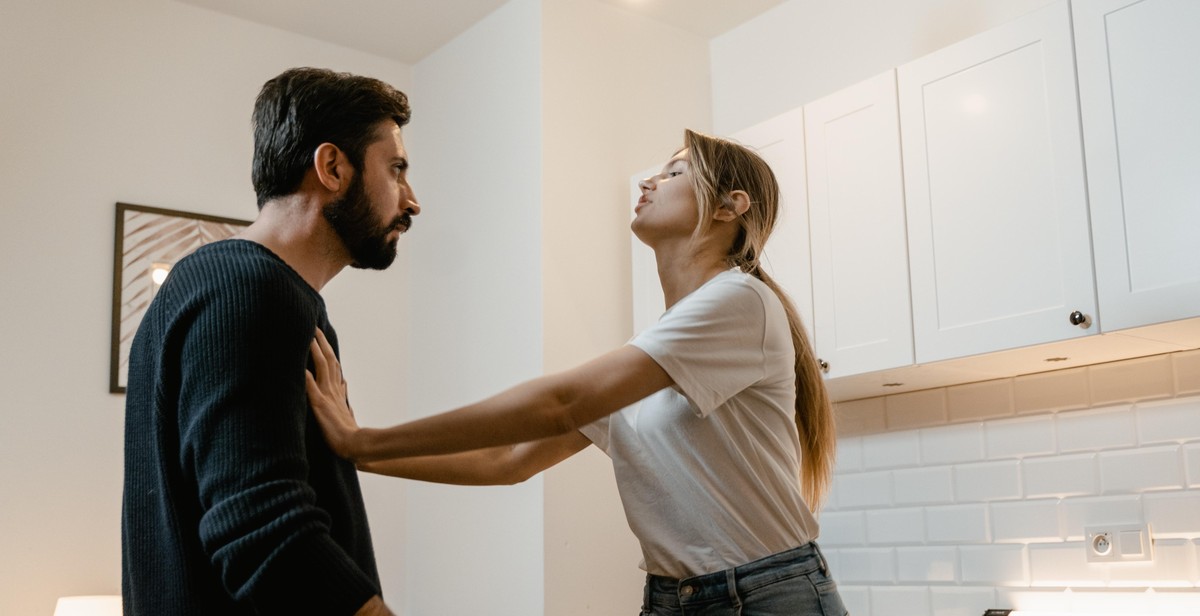Understanding and Overcoming Relationship Anxiety
Relationships can be one of the most fulfilling experiences in life, but they can also be the source of great anxiety and stress. As a love and relationships psychology guru, I have seen firsthand how relationship anxiety can affect individuals and their relationships.
My Personal Experience with Relationship Anxiety
As someone who has struggled with relationship anxiety in the past, I understand how overwhelming and all-consuming it can be. I would constantly worry about the future of my relationship, obsess over every little detail, and always fear the worst-case scenario. It was exhausting and incredibly damaging to my mental health and my relationship.
However, through my personal experience and professional expertise, I have learned effective strategies for understanding and overcoming relationship anxiety. In this article, I will share my insights on what relationship anxiety is, its causes, and most importantly, how to overcome it.
- What is Relationship Anxiety?
- The Causes of Relationship Anxiety
- Signs and Symptoms of Relationship Anxiety
- How to Overcome Relationship Anxiety
Whether you are currently struggling with relationship anxiety or want to learn how to support a loved one who is, this article will provide you with the tools and knowledge to move forward in a healthy and fulfilling relationship.

What is Relationship Anxiety?
Relationship anxiety is a feeling of intense worry, fear, or unease about romantic relationships. It is a common experience for many people, and can arise at any stage of a relationship, from the early dating phase to long-term commitment.
Symptoms of Relationship Anxiety
The symptoms of relationship anxiety can vary from person to person, but generally include:
- Constantly checking your partner’s social media accounts or phone
- Feeling anxious or uneasy when your partner is away
- Worrying about the future of the relationship
- Feeling insecure or jealous in the relationship
- Experiencing physical symptoms such as sweating, shaking, or nausea
If you experience any of these symptoms, it is important to remember that you are not alone. Many people struggle with relationship anxiety, and there are ways to overcome it.
Causes of Relationship Anxiety
There are many factors that can contribute to relationship anxiety, including:
| Causes | Description |
|---|---|
| Attachment style | Those with insecure attachment styles may be more prone to relationship anxiety |
| Past experiences | Previous negative experiences in relationships can lead to anxiety in future relationships |
| Low self-esteem | People with low self-esteem may be more likely to experience relationship anxiety |
| High expectations | Having unrealistic expectations for the relationship or partner can lead to anxiety |
It is important to identify the underlying causes of your relationship anxiety in order to address it effectively. Speaking with a therapist or counselor can be helpful in exploring these causes and developing coping strategies.

How Relationship Anxiety Affects Relationships
As a love and relationships psychology guru, I have seen how relationship anxiety can impact a relationship in different ways. Relationship anxiety can make it difficult for partners to communicate effectively, trust one another, and establish intimacy. Below, I will explain how each of these issues can arise due to relationship anxiety.
Communication Issues
Communication is key to any healthy relationship. However, when one or both partners experience relationship anxiety, it can be challenging to maintain open and honest communication. An anxious partner may struggle to express their thoughts and feelings, or they may over-communicate and constantly seek reassurance from their partner.
On the other hand, the non-anxious partner may find it challenging to understand their partner’s anxiety, leading to misunderstandings and arguments. These communication issues can create a cycle of frustration and resentment, making it difficult for the couple to resolve conflicts and build a strong foundation for their relationship.
Trust Issues
Trust is another essential component of a healthy relationship. However, relationship anxiety can make it challenging to trust one another fully. An anxious partner may constantly doubt their partner’s love and commitment, leading to jealousy, possessiveness, and even accusations of infidelity.
These trust issues can create a toxic and destructive dynamic, eroding the foundation of the relationship. The non-anxious partner may feel suffocated and restricted, leading to feelings of resentment and a breakdown of trust from their side as well.
Intimacy Issues
Intimacy is a crucial aspect of any romantic relationship. However, relationship anxiety can make it difficult to establish and maintain intimacy. An anxious partner may struggle to be vulnerable with their partner, fearing rejection or abandonment.
Additionally, the non-anxious partner may find it challenging to connect with their partner emotionally and physically, leading to feelings of frustration and dissatisfaction. These intimacy issues can create distance and disconnection in the relationship, making it challenging to build a strong and lasting connection.
Conclusion
Understanding how relationship anxiety can impact a relationship is the first step in overcoming it. By recognizing the communication, trust, and intimacy issues that can arise, couples can work together to address these challenges and build a healthy and fulfilling relationship.

Overcoming Relationship Anxiety
Relationship anxiety can be a challenging experience for anyone. It can cause you to doubt yourself, your partner, and the relationship. However, there are ways to overcome this anxiety and build a healthy, happy relationship.
Identifying Your Triggers
The first step in overcoming relationship anxiety is to identify your triggers. These are the things that make you feel anxious or insecure in your relationship. It could be something your partner says or does, or it could be a past experience that still affects you.
Once you identify your triggers, you can start to work on managing them. This may involve talking to your partner about how certain things make you feel or working through past traumas with a therapist. Whatever it is, it’s important to be open and honest with yourself and your partner about what triggers your anxiety.
Communicating with Your Partner
Communication is key in any relationship, but it’s especially important when dealing with anxiety. It’s important to talk to your partner about how you’re feeling and what you need from them. This could be as simple as asking for reassurance or as complex as setting boundaries around certain behaviors.
It’s also important to listen to your partner and be open to their perspective. Remember that relationships are a two-way street, and both partners should feel heard and valued.
Seeking Professional Help
If you’re struggling to manage your relationship anxiety on your own, it may be time to seek professional help. A therapist can help you work through your triggers and develop coping strategies to manage your anxiety. They can also help you and your partner communicate more effectively and build a stronger, healthier relationship.
Remember, overcoming relationship anxiety takes time and effort. It’s important to be patient with yourself and your partner as you work through these challenges. With the right tools and support, you can build a happy, healthy relationship that lasts.

Conclusion
Relationship anxiety is a common issue that can affect anyone, regardless of their age, gender, or sexual orientation. It can stem from past experiences, insecurities, or even the fear of being vulnerable. However, it is important to understand that relationship anxiety can be overcome with the right mindset and tools.
Self-awareness is key
One of the most important steps in overcoming relationship anxiety is to become self-aware. This involves understanding your triggers, past experiences, and insecurities. By identifying these factors, you can begin to address them and work towards building a healthier relationship.
Effective communication is crucial
Effective communication is crucial in any relationship, but it is especially important when dealing with anxiety. It is important to express your feelings and concerns to your partner in a clear and concise manner. This will help to prevent misunderstandings and will allow your partner to support you in the best way possible.
Seek professional help if needed
If you are struggling with relationship anxiety, it may be helpful to seek professional help. A therapist or counselor can provide valuable insights and tools to help you overcome your anxiety and build a healthier relationship.
Remember, progress takes time
Overcoming relationship anxiety is not an overnight process. It takes time, patience, and effort. However, by being self-aware, communicating effectively, and seeking professional help if needed, you can overcome your anxiety and build a strong and healthy relationship.
| Key Takeaways: |
|---|
| – Relationship anxiety is common and can stem from past experiences, insecurities, or the fear of being vulnerable. |
| – Self-awareness, effective communication, and seeking professional help if needed are important steps in overcoming relationship anxiety. |
| – Remember, progress takes time. |
